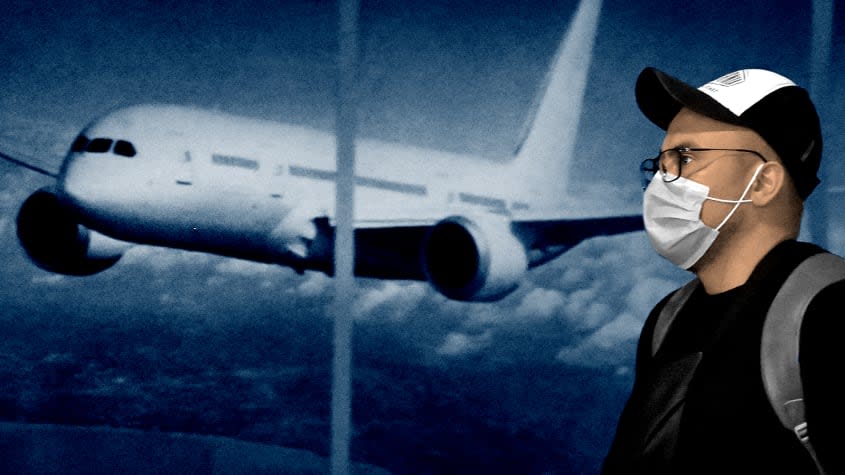What you need to know about traveling in 2022

Before a federal judge's surprising injunction at the end of April, the U.S. Centers for Disease Control and Prevention had extended its mask mandate for travel through May 3. But now that the date has come and passed, where does the mandate stand, and what other COVID-related travel restrictions still remain? Here's everything you need to know:
Is the judge's reversal still in effect?
Yes. As of May 4, masks remain optional on flights and other forms of public transit. The CDC, meanwhile, recommends Americans continue wearing face coverings while traveling.
On April 18, District Judge Kathryn Kimball Mizelle ruled the CDC had overextended its authority and failed to follow proper rulemaking procedures when implementing the mask mandate, thus overturning the policy. Shortly thereafter, a number of major aircraft carriers and transportation companies — brands like Delta, United, and Amtrak — ruled masks optional for all employees and customers. The Transportation Security Administration also said it would no longer enforce the mandate.
Travelers should keep in mind, however, that masks might still be required in some places, per local ordinances.
Will the travel mandate be reinstated?
The CDC recently asked the Department of Justice to appeal the judge's ruling — meaning there is a chance the rule comes back.
DOJ spokesperson Anthony Coley said on April 20 that a notice of appeal had been filed in light of the CDC's recommendation. It's currently unclear when the final decision might be made, but some worry bringing the mandate back will spark backlash from the public, Forbes notes.
United Airlines CEO Scott Kirby, for one, thinks it is "very unlikely" a mandate will return in the "foreseeable future," he told NBC News, arguing that the DOJ's appeal "is mostly about jurisdiction."
Are there other travel restrictions I should know about?
All international travelers over the age of 2 must still provide a negative COVID test (either a PCR or an antigen test) taken within one calendar day of their return flight to re-enter the U.S. Non-citizens must also show proof of vaccination.
Travelers can self-test, but whatever at-home test you use must adhere to the CDC's strict guidelines.
When will travel be 'normal' again?
As it has been with so much of the pandemic, it's hard to predict when jet-setting around the world will once again feel like it did pre-COVID — particularly as it related to virus restrictions. Take the aforementioned pre-departure testing, for example; on April 5, White House coronavirus response coordinator Jeff Zients said the administration has "no plans to change international travel requirements at this point." But such a requirement has actually dampened interest in flying abroad, The Points Guy reports.
Delta, however, seems to think a testing requirement rollback is imminent, Travel Weekly notes. "We are getting a strong indication that pre-departure testing will be phased out in the near future, which is quite encouraging," Delta Chief Legal Officer Peter Carter reportedly said in mid-April.
What does this whole debacle mean for the CDC?
Public health and legal experts were worried that Mizelle's ruling might "diminish" the CDC's power over public health decisions, Politico reports.
"So many people are sick of masks," Wendy Parmet, faculty co-director of Northeastern University's Center for Health Policy and Law, told Politico. "But it's not about that. It's about who makes our public health policy. The judiciary — a 35-year-old unelected judge — or the CDC and the Department of Health and Human Services?"
You may also like
U.S. is letting Ukraine field-test mysterious new Phoenix Ghost drones

